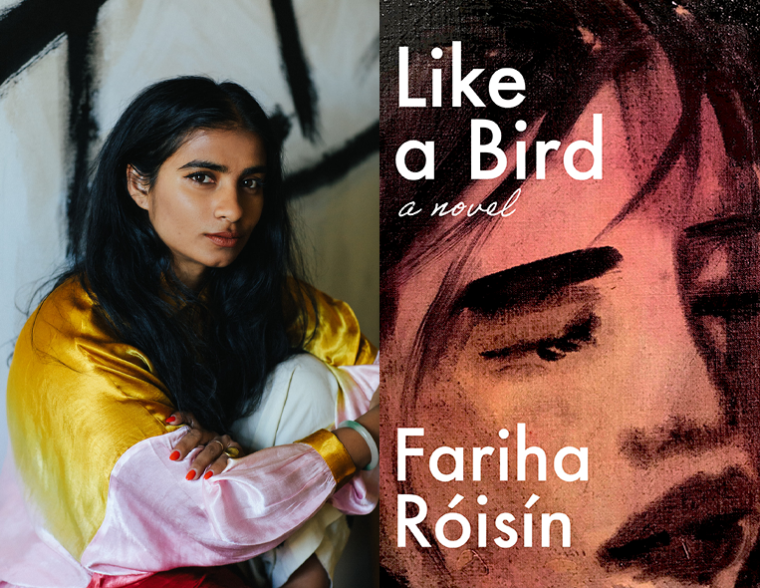This week’s installment of Ten Questions features Fariha Róisín, whose debut novel, Like a Bird, is out today from Unnamed Press. Growing up in the shadow of her elegant older sister, Taylia Chatterjee always felt invisible to her family and to the world. In the first line of the novel, she reflects: “To be a person was a great mystery to me; even at a young age I felt heavy with the weight of dissatisfaction.” And after a violent sexual assault by a family friend, Taylia is further exiled; she’s disowned by her parents and forced to move out of their Upper West Side apartment. Adrift in New York City, she finds work at a café and searches for community, understanding, and a clearer sense of both the past and future. Precise and intense, Like a Bird is a record of the imperfect and ongoing process of survival and a tribute to the lifeline of chosen family. “Like a Bird is such a generous text, teeming with layered and beautifully living characters,” writes Hanif Abdurraqib. “A flaw of so much book praise is the quest to make every book universal. This book sings, specifically, to a people, while leaving the door open wide enough for anyone else to walk through.” Fariha Róisín is a multidisciplinary artist based in Brooklyn. She is the author of the poetry collection How to Cure a Ghost (Abrams, 2019) and the guided journal Being in Your Body (Abrams, 2019). Her writing has also appeared in Al Jazeera, the Guardian, the New York Times, Vice, and the Village Voice, among other publications.

Fariha Róisín, author of Like a Bird.
1. How long did it take you to write Like A Bird?
I’ve been writing it for eighteen years. More than half my life.
2. What was the most challenging thing about writing the book?
I think everything about writing a book is challenging. To be read is embarrassing and terrifying. Then to do it in book form and know it will be read in a tangible way by strangers across the globe…that’s wild. It’s a privilege, of course, and I wish I remembered that as I wrote this novel. I’m a Capricorn, so sometimes I can take my own work too seriously.
3. Where, when, and how often do you write?
I write every day I’d say. Or almost. It’s one of my favorite things to do in the world. I always write at tables for sustainable, ergonomic reasons.
4. What are you reading right now?
I read a few books at once. I don’t know why. My girlfriend thinks I’m not gaining any information by doing that, but I disagree. My favorite balance is juggling nonfiction, fiction, and a book of poetry. It’s a delicious balance. Right now I’m reading: Sex and Lies by Leila Slimani; Winners Take All by Anand Giridaharas; She, Woman, Other by Bernardine Evaristo; Funny Weather by Olivia Laing; and She Had Some Horses by Joy Harjo.
5. Which author, in your opinion, deserves wider recognition?
Etel Adnan. Also I wish Toni Morrison had more of a readership outside of America. She deserves to be read everywhere and to be revered everywhere.
6. What is the biggest impediment to your writing life?
My own self-doubt.
7. What is one thing that your agent or editor told you during the process of publishing this book that stuck with you?
I just really appreciated my editor Olivia’s assurance that she loved the book. I really need that validity from an editor because I can get in my own head and be very hard on myself. So it was valuable to have someone say, “No, this is good. I’m proud of you.”
8. If you could go back in time and talk to the earlier you, before you started Like A Bird, what would you say?
You’re going to be alright. You’re going to have the life that you wanted.
9. Who is your most trusted reader of your work and why?
Oh shit. I don’t know really. I have a newsletter that I write almost on a weekly basis—the summer has been hard though—and whenever a close friend tells me about a specific issue that they read and it resonated, I’m always moved. People who read everything I write have a special place in my heart. Especially friends. It’s such a gift to hear that you’re being devoured.
10. What’s the best piece of writing advice you’ve ever heard?
Take a break and then edit.







